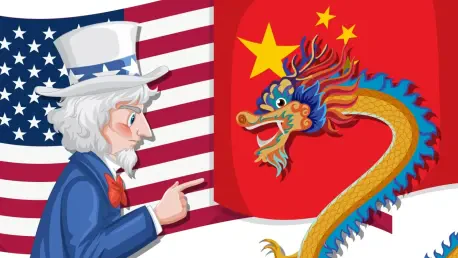In the latest round of trade discussions between the United States and China, the much-anticipated talks did not yield any significant advances, raising concerns among investors and market analysts alike. Set against the backdrop of the Geneva agreements, these negotiations were aimed at solidifying a fragile trade truce. However, the absence of substantive new commitments has left financial markets in a state of uncertainty. Key players hoped for progress towards clear resolutions or bilateral agreements to ease current tensions, but those aspirations remain unmet. This stagnation has contributed to growing anxiety, with some financial experts voicing alarm over the perceived shift of U.S. policies towards more authoritarian frameworks. Such a political climate is creating additional layers of unpredictability, further rattling investor confidence in both American and global market landscapes.
Impact on Global Markets and Investors
The repercussions of the stalled U.S.-China trade talks extend beyond diplomatic disappointment, severely affecting investor sentiment globally. Market reactions underscore the complex relationship between geopolitical stability and economic resilience, as every move by these global powerhouses reverberates through stock exchanges, impacting portfolios and investment strategies. Investors have been keeping a watchful eye on developments, hoping for indicators of a stabilizing environment. Yet, the apparent impasse underscores their need for cautious maneuvers, as geopolitical uncertainties make long-term forecasting precarious. Meanwhile, sectors that rely heavily on export markets and international cooperation face added pressures. As the landscape remains in flux, the balance of cautious optimism and strategic adjustments becomes crucial for those navigating these uncertain waters. Financial markets are left grappling with the difficult task of factoring in potential outcomes from these unresolved dialogues.
Corporate Landscape Amid Geopolitical Shifts
Companies are adjusting their strategies at the corporate level in response to changing international dynamics, as highlighted by recent trade negotiations. A notable example is ZipCo’s impressive expansion in the U.S., which showcases how innovation and growth in market share can help businesses succeed amid uncertainty. Their transaction volume increased by more than 40%, demonstrating the success potential when seizing strategic opportunities. In contrast, Qantas’s choice to shut down JetStar Asia raises concerns about the sustainability of cross-border operations, especially when expensive fleet renewals are involved. Such decisions may set precedents for other multinational companies facing similar challenges. The global business landscape requires a mix of adaptability and foresight to navigate the effects of international policies and align with evolving market demands. This corporate recalibration highlights the complex impacts of trade negotiations beyond initial diplomatic interactions, underscoring a broader influence on strategic business adjustments.









